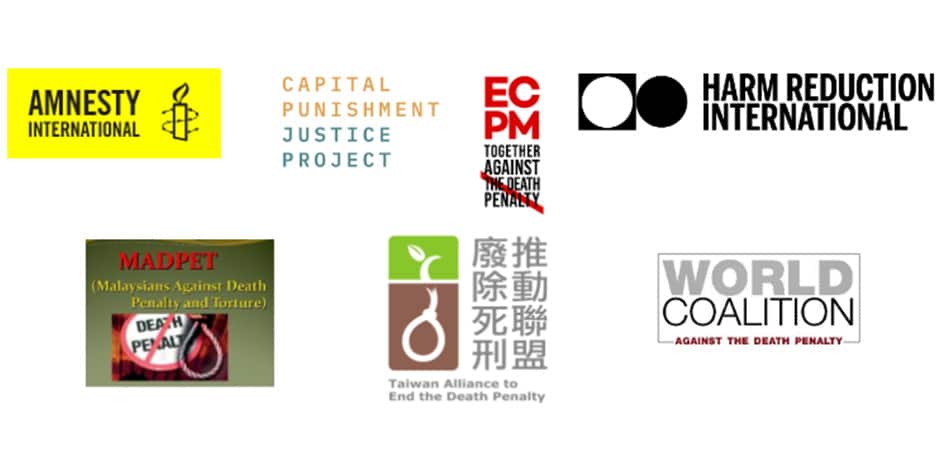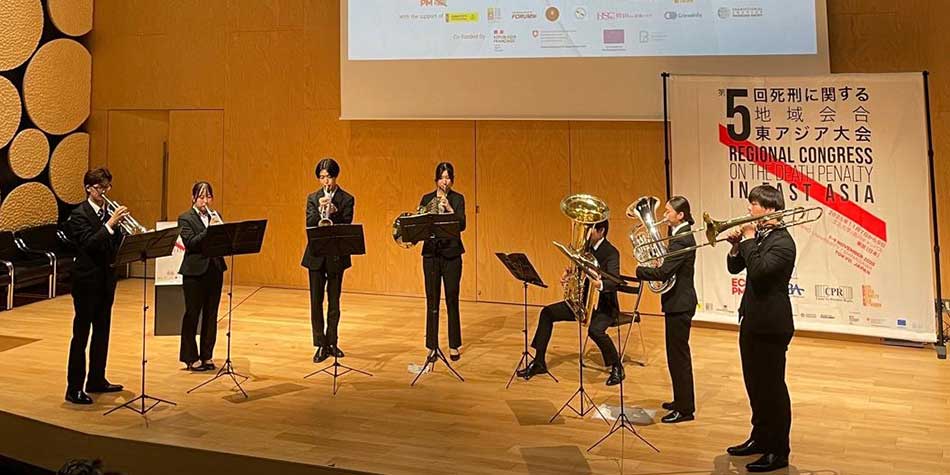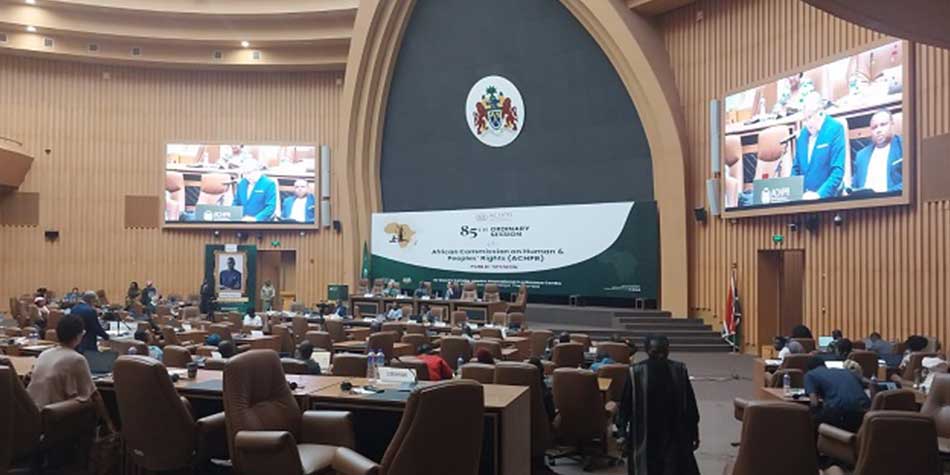
Singapore: Authorities must end human rights crackdown and unlawful drug related executions
Statement
We, the undersigned seven organizations, are greatly alarmed at the deteriorating human rights situation in Singapore. Abstract of a joint statement published on 31 October 2024. To read the full statement.
We, the undersigned seven organizations, are greatly alarmed at the deteriorating human rights situation in Singapore. Concerning developments since the beginning of October 2024 have included two more executions for drug related offences, in violation of international human rights law and standards, as well as further restrictions to the exercise of the right to freedom of expression by anti-death penalty activists. We renew our call on the Singapore authorities to immediately establish a moratorium on all executions and cease the harassment of civil society representatives, as critical first steps. We also urge the international community to step up pressure on the government of Singapore, to ensure that the human rights of those facing the death penalty in Singapore, as well as those campaigning against its use everywhere, are protected.
1. Use of death penalty against international human rights law and standards
[…] Four of the five executions known to have been carried out in Singapore so far this year were of people convicted of drug trafficking. The use of the death penalty for drug related offences violates international human rights law and standards, which restrict its use to the “most serious crimes”, most recently interpreted as referring to “crimes of extreme gravity involving intentional killing”. Several UN bodies, including the International Narcotics Control Board, have repeatedly clarified that drug related offences do not meet this threshold. Singapore is one of only five countries where Amnesty International confirmed drug related executions in 2023.
Additionally, both men executed in October were sentenced to the mandatory death penalty, which means that the judges could not consider the particular circumstances of the offence or the background of the convicted person, also in violation of international law and standards.
Another troubling aspect is that the conviction in one of the two cases was reached with reliance on the legal presumption of trafficking under the Misuse of Drugs Act, based on the amount of drugs that he had been found with. When these legal presumptions are invoked, the burden of proof is shifted onto the defendant to be rebutted to the higher legal standard of “on balance of probabilities”. Legal presumptions of guilt violate the right to be presumed innocent – a peremptory norm of customary international law – and other fair trial guarantees under international human rights law that mandate that the burden of proving the charge rests on the prosecution. In addition to this, presumptions of guilt have also had the effect of lowering the threshold of evidence needed to secure a conviction in capital cases.
We are also deeply alarmed that the executions proceeded while the two men had an appeal pending, in violation of international safeguards on the death penalty. The execution of Azwan was initially set for 19 April 2024 and stayed two days before it was due to be carried out, to allow for the consideration of a judicial application. A second execution notice for 4 October was given to Azwan on 30 September, despite him being party – together with 30 others – to a legal civil application filed before the High Court on 19 September. […]
2. Relentless pursuit of executions highlights urgent need for a moratorium on use of death penalty
A chilling indication of the determination of the government of Singapore to pursue executions, as seen since April 2024, has been emerging also through other recent developments. The two executions carried out in October were characterized by a shortened notice period of four days, compared to the timeline usually observed by the prison authorities of at least seven days. […]
We are of the view that the death penalty always violates the right to life, and is the ultimate cruel, inhuman and degrading punishment. The shortened procedure adds cruelty and anxiety to an already stressful execution process, including by denying or limiting the opportunity for the family members to spend time with their beloved ones. It also creates further unfair limitations on a person on death row to access lawyers for the pursuit of legal proceedings.
The Administration of Justice (Protection) (Amendment) Bill, which was introduced in Parliament on 14 October 2024,18 seeks to expand the scope of the circumstances that could amount to contempt of court under the Administration of Justice (Protection) Act 2016 […]
3. Harassment of anti-death penalty activism and repression of criticism
We condemn in the strongest terms the continued intimidation and climate of fear that the authorities have created around anti-death penalty activism in Singapore and demand that the harassment of activists ceases at once.
Since the beginning of October, the Ministry of Home Affairs issued three Correction Directions and Targeted Correction Directions under the Protection from Online Falsehoods and Manipulation Act (POFMA). POFMA orders have been used to target those who criticize the handling of death penalty cases in Singapore, with the broader effect of curtailing the right to freedom of expression and human rights activism in the country, as well as preventing fully informed debates on the ongoing use of the death penalty. The first order was issued on 5 October, requesting the Transformative Justice Collective (TJC, a civil society group actively opposing the death penalty in Singapore), and specifically one of their activists, Kokila Annamalai, to post “factual corrections” on their social media accounts and publish the response of the government to the criticism of the handling of the execution of Azwan – a response which made no reference to restrictions to the use of the death penalty set out under international law and standards. While posting the correction, the TJC rejected the claim by the government that they had “spread falsehoods” and noted the use of POFMA orders as “a political weapon used to crush dissent”. […]
Additionally, on 3 October the Infocomm Media Development Authority (IMDA), acting in consultation with the Ministry of Home Affairs, refused to grant to the Transformative Justice Collective the license to show a multi-media exhibition around the World Day Against the Death Penalty (10 October). According to TJC members, the exhibition materials sought to draw attention to the history of Singapore’s death penalty regime, and voices of prisoners on death row and their families, but were found by the IMDA to “paint a misleading picture of the use of the death penalty in Singapore” and undermine “the integrity of public institutions and the administration of justice”.
We stand by the activists of the TJC and reiterate our demand on the Singapore authorities to end the crackdown on human rights activism and ensure the protection of the right to freedom of expression for all. When seeking to protect people in Singapore from harm, the authorities must act in accordance with international human rights law, including that related to the protection of the right to freedom of expression. Restrictions to this right must be clearly and narrowly defined in law and conform to the strict tests of necessity and proportionality to a legitimate aim, rather than, in the case of POFMA and the refusal of the license for the exhibition, becoming a weapon for censorship.
4. Recommendations
As in recent weeks the Supreme Court has considered and rejected applications filed by several men on death row, potentially exposing them to the risk of execution, raising awareness of the human rights issues associated with the use of the death penalty in Singapore is more critical than ever.
We call on the Government of Singapore to immediately:
– Establish a moratorium on all executions, commute death sentences and review national legislation to bring it in line with international human rights law, pending full abolition of the death penalty.
– End the harassment of anti-death penalty activists and civil society representatives.
– Cease the use of POFMA orders to silence criticism and ensure that any legal provisions aimed at protecting national security or that unduly restrict the right to freedom of expression are reviewed so that they conform to international human rights law and standards, in order to guarantee the right to freedom of expression for all.
– Review and amend all laws and regulations, and end all related policies and measures, that violate human rights, in particular the rights to life, a fair trial, freedom of expression, peaceful assembly and association, and ensure that any legal provisions aimed at protecting national security are clearly and narrowly defined and conform to international human rights law and standards.
We call on the international community to immediately take unified and stronger actions to urgently request for:
– An end to all executions in Singapore, as a first critical step towards abolition of the death penalty.
– Respect of human rights of all, including the right to freedom of expression, association and peaceful assembly.
– An end to the harassment of anti-death penalty activists and civil society representatives.
– Repeal repressive legislation, and provisions in national legislation that do not fully comply with international human rights law and standards.
This statement is co-signed by:
Amnesty International
Capital Punishment Justice Project
ECPM – Together Against the Death Penalty
Harm Reduction International
MADPET– Malaysians Against Death Penalty and Torture
Taiwan Alliance to End the Death Penalty
World Coalition Against the Death Penalty







